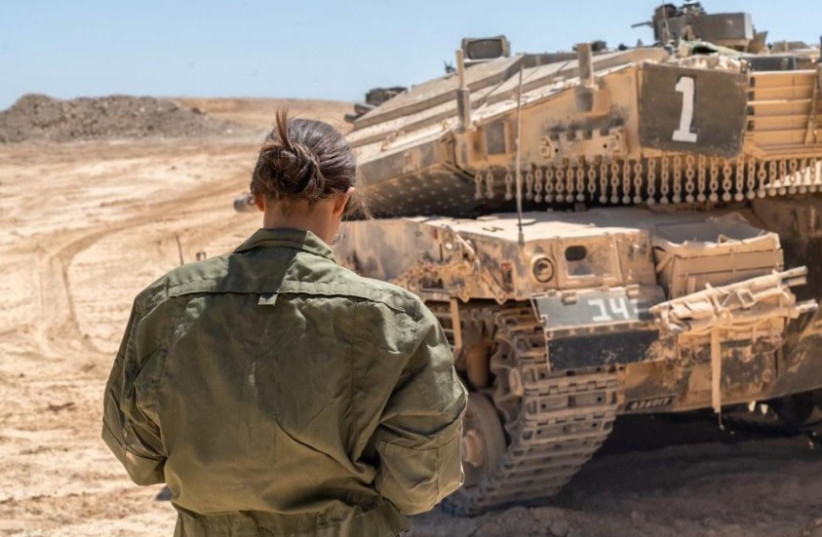IDF must do more to lower Palestinian civilian death toll in Gaza
Israel must do more to reduce the Palestinian civilian death toll in Gaza, US State Department spokesman Matthew Miller said, as the IDF’s renewed military campaign in Gaza intensified.
“We want to see the civilian death toll lower than it has been, lower than it has been today, and lower than it has been the past few days,” he said.
“To many Palestinian civilians have died in this conflict. Too many Palestinian civilians continue to die,” Miller said. “We will continue to have very direct conversations with the Israeli government about steps they can and should take further [action to] minimize civilian harm,” he said.
He noted that there were safe zones which had been set up for civilians in southern Gaza.
“There are UN sites, sites where people can go that should not be struck. We expect the Israeli government will respect those deconfliction zones and not strike them,” he said.

Miller acknowledged the complexity of the IDF campaign, explaining that a “good component” of this is the problem presented by Hamas embedding in civilian areas, he said.
UN Secretary-General Antonio Guterres made a rare move on Wednesday to formally warn the Security Council of a global threat from the Gaza war as Arab states sought to leverage that to renew a push for the council to call for a ceasefire.
The United States, one of five veto powers on the 15-member council, is opposed to a ceasefire between its ally Israel and Hamas because it believes such a move would only benefit the terror group.
Washington does support humanitarian pauses to protect civilians and allow for the release of hostages taken by Hamas in the Oct. 7 attack. It abstained last month to allow the Security Council to adopt a resolution calling for pauses in fighting.
Guterres told the council in a letter that the Gaza war “may aggravate existing threats to international peace and security.”
Invoking Article 99
He invoked Article 99 of the founding UN Charter that allows him to “bring to the attention of the Security Council any matter which in his opinion may threaten the maintenance of international peace and security.”
The article has not been used for decades, UN spokesperson Stephane Dujarric said.
“We are facing a severe risk of collapse of the humanitarian system. The situation is fast deteriorating into a catastrophe with potentially irreversible implications for Palestinians as a whole and for peace and security in the region,” Guterres wrote.
“Such an outcome must be avoided at all cost,” he said, again calling for a humanitarian ceasefire to be declared.
The US mission to the UN did not immediately respond to a request for comment on Guterres’s letter.
Miller said Washington had seen the letter but declined to comment on it specifically, adding that the United States would continue to consult with Guterres and members of the UN Security Council.
“Of course there are threats to regional security and threats to global security that are presented by this conflict. We said that in the very aftermath of October 7th, and we made it quite clear that one of the things that we are trying to do is prevent this conflict from spreading,” Miller told reporters at a regular news briefing.
Palestinian UN envoy Riyad Mansour on Wednesday said Arab diplomats were “fine-tuning” a draft Security Council resolution to call for a ceasefire. A resolution needs at least nine votes in favor and no vetoes by the United States, Russia, China, France or Britain.
Mansour said Arab ministers were due to visit Washington on Thursday and would discuss the measure with US officials.
“On top of the agenda is this war has to stop. A ceasefire has to take place and it has to take place immediately,” he told reporters.
Israel unleashed its military campaign to destroy Hamas in response to the October 7 attack in which Israel says 1,200 people were killed and 240 hostages seized. Figures relayed by Gaza’s Health Ministry put the death toll in the Palestinian enclave since then at 16,015.
Guterres told the Security Council in his letter that there was no effective protection of civilians in Gaza.
“Nowhere is safe in Gaza,” he wrote.





Comments are closed.